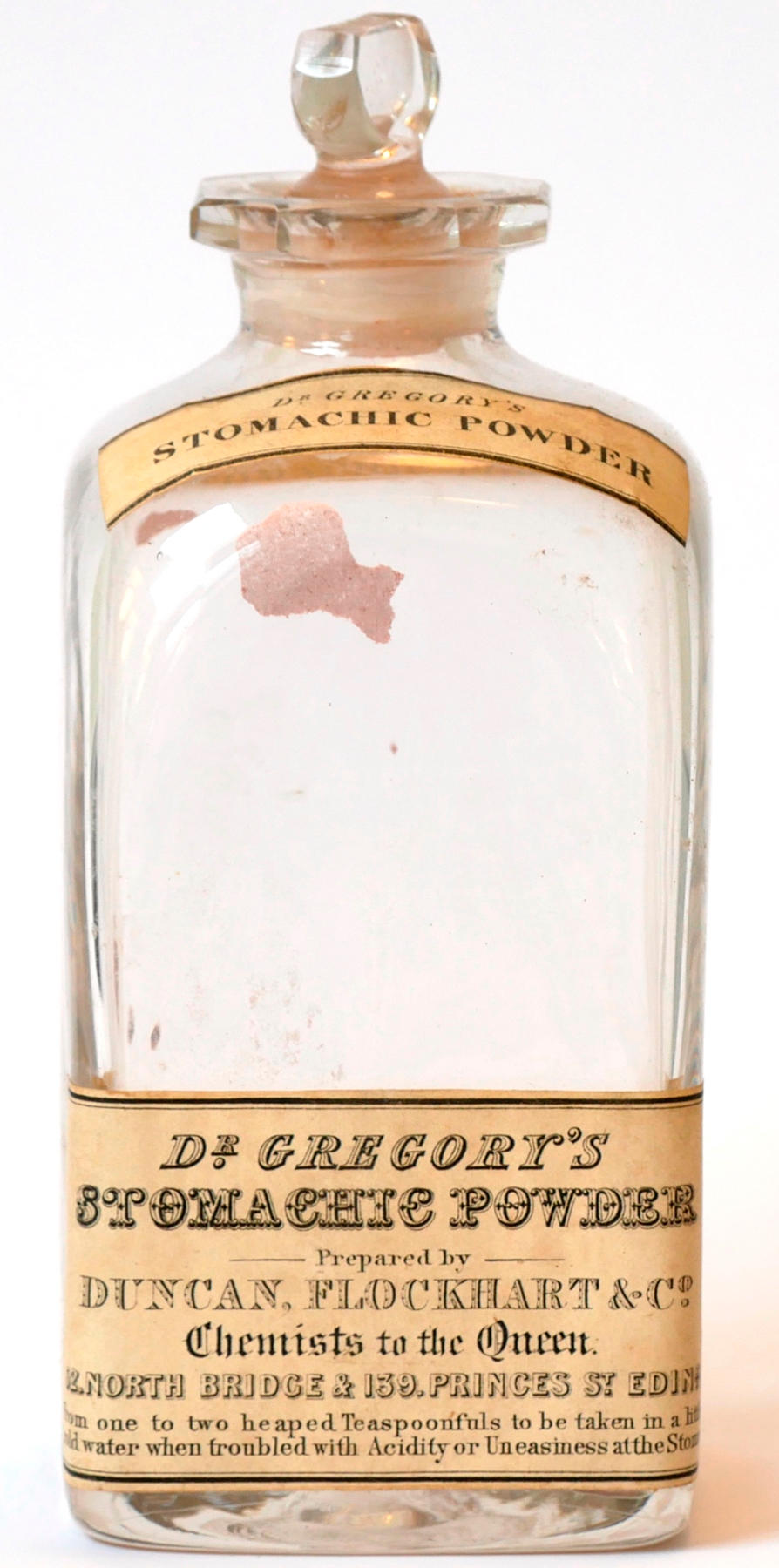COMMERCIAL MEDICINE
In the 1700s rising consumerism meant that more people were able to buy pre-made medicines from stores. Apothecary shops sold these medicines, but so did booksellers, hairdressers and stationers. Advertisements in the printed press for branded medical products grew in both quantity and complexity over the course of the 1700s.
Often the contents of these patent medicines remained the same as earlier home-made versions. Rhubarb, liquorice and mint were common ingredients. Imported items from overseas were also increasingly included, including sugar, chocolate, spices and plants.
In the 1700s far more medicines received royal patents than any other invention. Anyone could get a royal patent for a medicine – its formula had to be unique, but there was no need to prove that it worked. Opportunists cashed in on the popularity of home remedies and self-diagnosing to create pre-made medicines which could be bought for home use.
In Edinburgh - much like elsewhere - visiting itinerant sellers and quacks could be a relief from otherwise monotonous and dreary lives. This often took the form of street entertainment and individuals could get a licence from the Edinburgh council to erect a stage on the Royal Mile. People would dress in ornate costumes, perform juggling tricks and act comedies and plays to attract an audience.
This patent medicine, Gregory’s Stomachic Powder, was named after its creator James Gregory (1753-1821). Gregory was Professor of Medicine at the University of Edinburgh and personal physician to King George III and George IV. Its characteristic pink colour comes from the rhubarb it contains. Gregory grew the rhubarb used in his medicine at his home in Morningside.
Examples can be found of the use of branded medicines by Edinburgh dispensary patients prior to their admission into the dispensary. These include Forbes’s Lozenges and Anderson’s Pills, the former a common cough treatment, the latter a mild laxative.
Often the contents of these patent medicines remained the same as earlier home-made versions. Rhubarb, liquorice and mint were common ingredients. Imported items from overseas were also increasingly included, including sugar, chocolate, spices and plants.
In the 1700s far more medicines received royal patents than any other invention. Anyone could get a royal patent for a medicine – its formula had to be unique, but there was no need to prove that it worked. Opportunists cashed in on the popularity of home remedies and self-diagnosing to create pre-made medicines which could be bought for home use.
The Edinburgh market
In Edinburgh - much like elsewhere - visiting itinerant sellers and quacks could be a relief from otherwise monotonous and dreary lives. This often took the form of street entertainment and individuals could get a licence from the Edinburgh council to erect a stage on the Royal Mile. People would dress in ornate costumes, perform juggling tricks and act comedies and plays to attract an audience.
This patent medicine, Gregory’s Stomachic Powder, was named after its creator James Gregory (1753-1821). Gregory was Professor of Medicine at the University of Edinburgh and personal physician to King George III and George IV. Its characteristic pink colour comes from the rhubarb it contains. Gregory grew the rhubarb used in his medicine at his home in Morningside.
Patent medicines and dispensary patients
Examples can be found of the use of branded medicines by Edinburgh dispensary patients prior to their admission into the dispensary. These include Forbes’s Lozenges and Anderson’s Pills, the former a common cough treatment, the latter a mild laxative.





